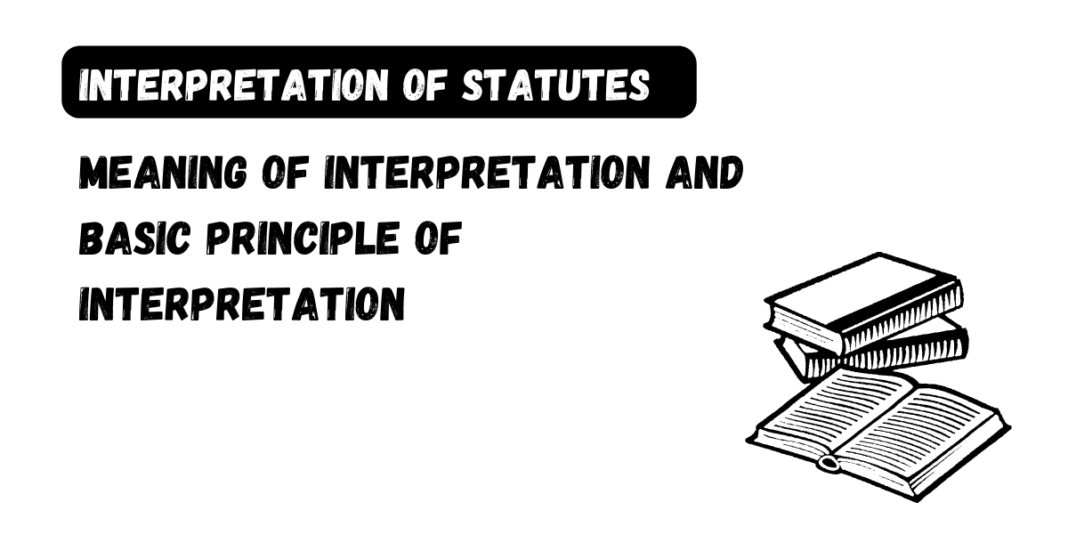Meaning of Interpretation
Interpretation is the process of analyzing and understanding the meaning of a legal text, such as a statute, regulation, or contract.
Interpretation involves determining the intended scope and effect of the text, resolving ambiguities or inconsistencies, and applying the text to specific situations.
The Basic Principles of Interpretation
- Literal Rule: This principle holds that the text of a statute should be given its plain, ordinary meaning, as understood by the average person. This approach assumes that the words used by the legislature were chosen carefully and that the meaning of the text should be clear and unambiguous.
- Golden Rule: This principle allows for some flexibility in interpreting a statute by allowing the court to depart from the literal meaning of the words when doing so would avoid an absurd or unjust result. Under this approach, the court may modify or extend the plain meaning of the text to achieve a more reasonable outcome.
- Mischief Rule: This principle is based on the idea that statutes are designed to address specific problems or “mischief,” and that the court should interpret the text in a way that furthers the statute’s purpose. This approach allows the court to look beyond the literal text of the statute to understand the underlying problem the statute was meant to solve.
- Purposive Approach: This principle focuses on the broader social and policy goals of the statute, rather than the specific words used in the text. Under this approach, the court seeks to understand the overall purpose of the statute and interpret it in a way that furthers that purpose.
- Contextual Approach: This principle emphasizes the importance of considering the context in which the statute was enacted and the circumstances surrounding its creation. This approach allows the court to take into account factors such as the legislative history, social and economic conditions, and the overall legal framework when interpreting the statute.





